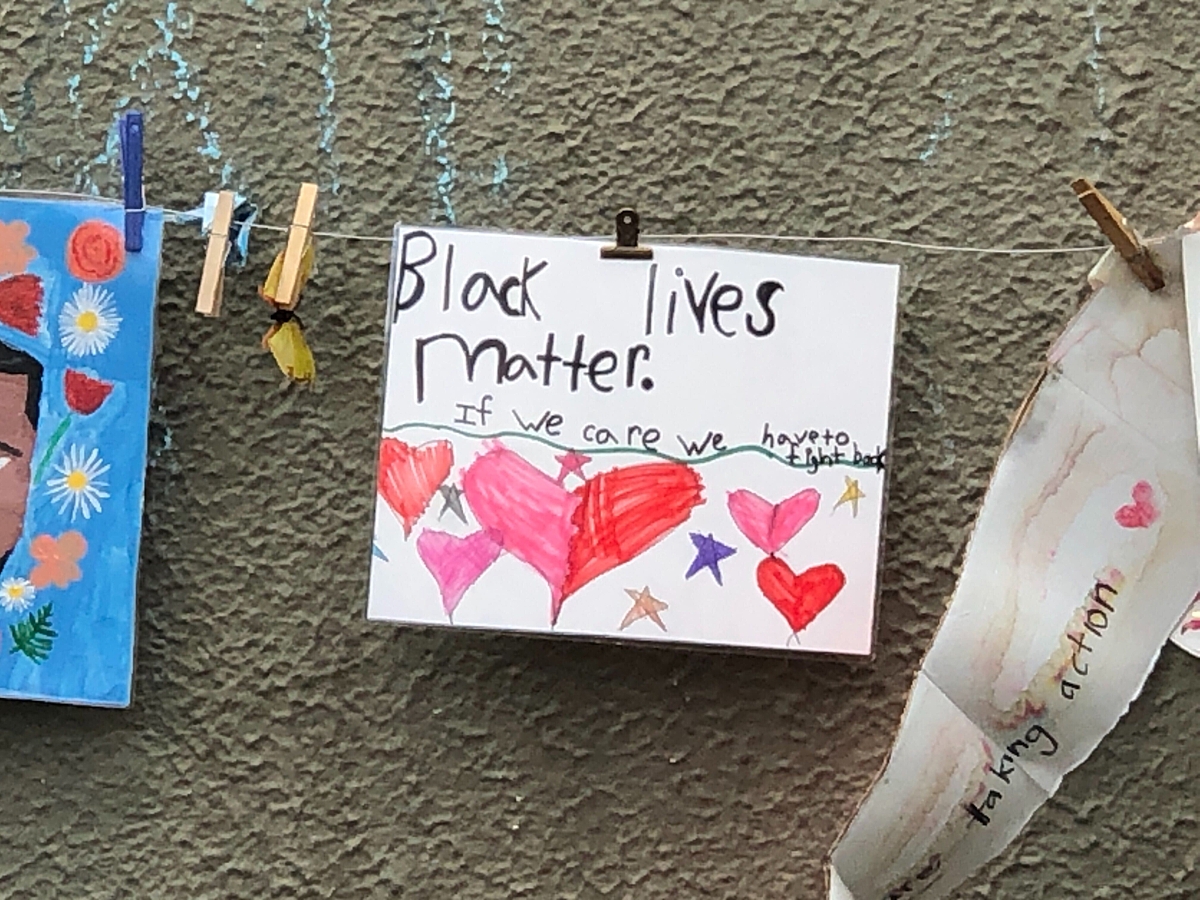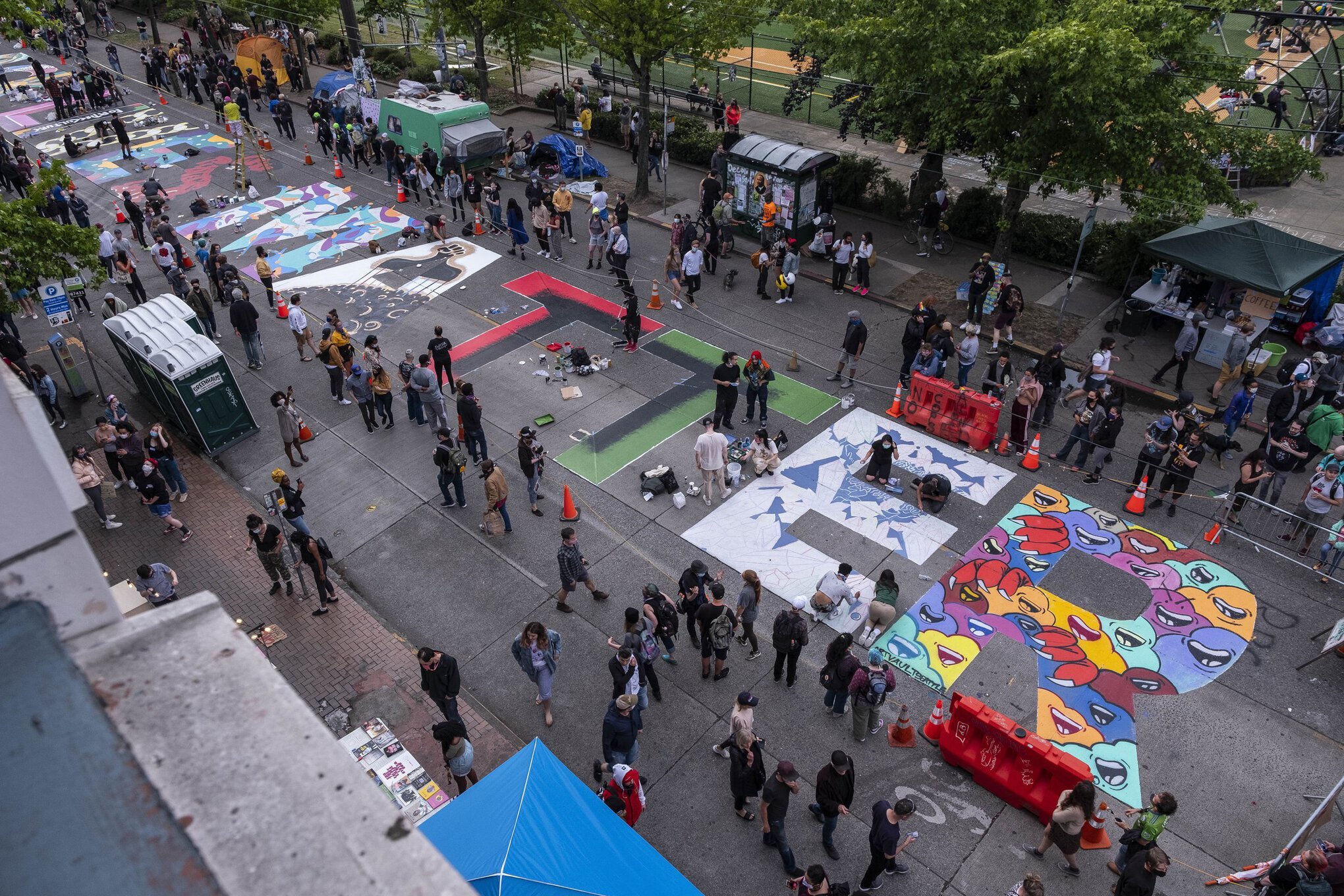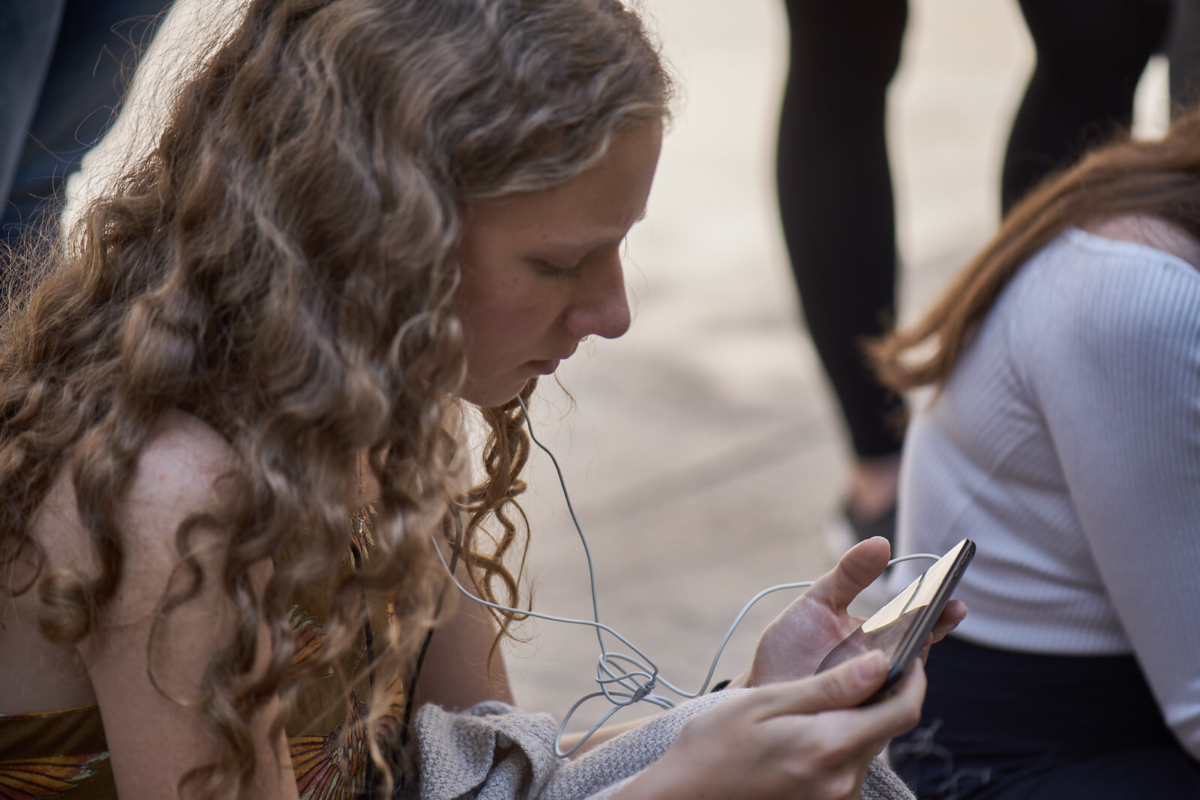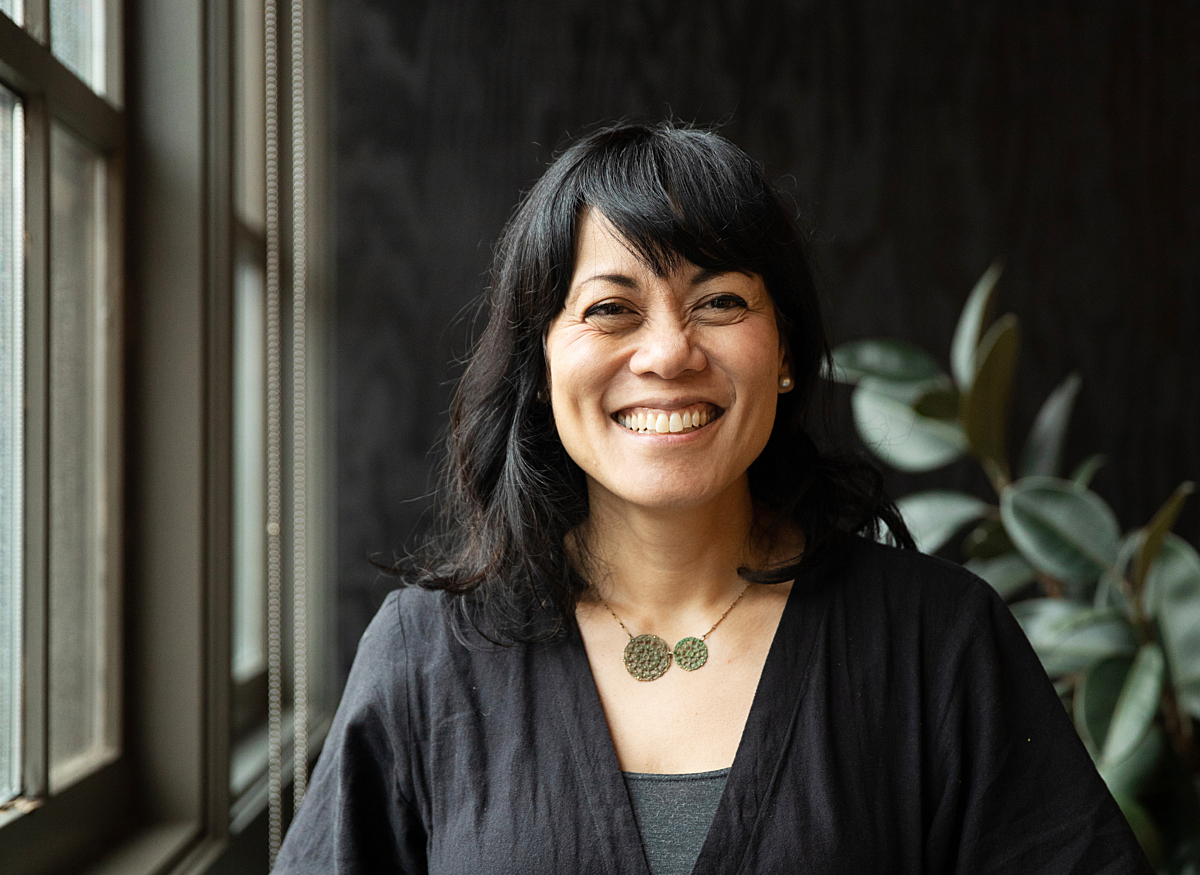Culture
If We Care - We Have to Fight Back

Author
Carey Jenkins, CEO
I have tried for weeks to come up with something to say to our community about George Floyd and Breonna Taylor’s murders. Something worthy of taking up even a molecule of space we should spend listening to black people. My daughter, who is seven, wanted to contribute to her school's Artwalk and got out her markers and in the span of 20 minutes had spilled a broken heart on the page and written the words I had so struggled to find.
If we care, we have to fight back.

Substantial has for almost a decade made our home on the corner of Broadway and Pine, just a block from Seattle’s 13th police precinct and right in the heart of the CHOP (formerly CHAZ), the epicenter of Seattle’s protests. Our neighborhood, the historical sanctuary for Seattle’s LGBTQ community, is an integral part of who we are and who we want to be, because of its diversity, the cross-section of people we see between Cal Anderson Park and Seattle Central College. The rainbow crosswalks lead to us.

In 2008, I celebrated election night right in front of our building, years before I would work there, let alone become CEO. Twelve years later and the police are using tear gas on citizens protesting racist brutality in the spot where I cried in amazement we had elected Barack Obama. I can’t decide if I’m sad or relieved that we are all scattered working from home instead of occupying our historic building during such an important moment for our community and the world.
The truth is, our neighborhood is more diverse than Substantial has ever managed to be. To be a part of it shelters us from the reality that we are, like most technology companies, largely white and cis-gendered with mostly the same backgrounds and a lot of the same experiences. We consider ourselves allies to DEI and support organizations accordingly. We have put effort into diversity but that effort has always fallen short of making a material difference in the make-up of our staff. We've been humbled several times throughout our history when called out on how we’ve failed segments of our employees. Good intentions + shallow actions = few outcomes.
Do we care?
Yes, but caring has always stopped short of real change. Last year, after announcing our goals for the year, an employee asked me if we had any KPIs around diversity. The answer was no. In part because we weren’t sure what to meaningfully measure, but largely because we weren’t intentionally moving any diversity work forward. That prompt was the catalyst for the executive team to revisit diversity, equity and inclusion and for the first time actually put resources and budget towards it. We admitted the ways the work had felt futile, we admitted we honestly weren’t sure what we should be doing, and I admitted I was scared at what that work would uncover. And then we got help. We’ve been working with our DEI partner, Moving Beyond, for a year and to be honest, it feels like we have barely scratched the surface.
Do we fight back?
We have listened to podcasts, and read books and articles, we have had hard conversations in person and on Slack, we have had great participation and disappointing participation. We have heard and said things that have felt like progress. We had our first all company implicit bias training last week on Juneteenth - even with trepidation it was a positive step forward.
And yet it all feels entirely untethered to the depth of this moment - the callousness with which black people are murdered by police and protestors are met with militaristic opposition. It is difficult to accept the reality that work like this takes commitment and energy over an extended time period when the urgent need for progress slaps you in the face with ferocity. A media club seems incredibly inconsequential.
The reality is that this fight will be fought on multiple levels and over a period much longer than these current protests will likely last. I have to do the work for myself, as do my family and friends. And my leadership team. And Substantial at large. And our neighborhoods and cities and states. It’s taken hundreds of years to create these conditions and no book, meeting, or workshop can fix it, no matter how much we wish it were that easy.
But having intentional conversations about race and equity is a critical first step. Nothing rankles me more than speaking about race to the company. As a woman CEO there are so many hard topics I can bring decades of experience to - when speaking on race, as a white person, I have nothing to lean on. I’ve done it half a dozen times now, twice during the most consequential protests of my lifetime. Not once has it felt easy, not once have I said the perfect thing, and not once have I regretted it.
And yet here we are - I still need my daughter’s words to give me courage. I am afraid to be all care and no fight.
If we care, we have to fight back.
As a company, we want to embody our values more truthfully - to be as inclusive as we say we are. To do that, we each need to reflect and admit mistakes past and present and to do everything in our power to ensure we make consistent and measurable progress.
If I can offer any insights in our work so far, here they are:
- Get help. It is very difficult to see hard truths about your company without the guidance from an outside perspective trained in this kind of work. That requires allocated budget and resources.
- Create a safe space for very uncomfortable conversations and practice having them. I am so grateful we started our DEI journey last year so that we could have deeper and more meaningful dialogue about what is happening right now. We created an open and active DEI Slack channel for discussions and media sharing for both led and spontaneous discussions, which has been particularly active since we went all remote.
- Make specific commitments and revisit them regularly. We now have quarterly and annual KPIs for our DEI work and I participated in the CEO Act On Diversity & Equity Pledge as a framework for my responsibilities as a leader.
- Lead by example and be ready to be wrong. All leadership should be humble and active participants. There is no way to further learning and initiatives without recognizing the mistakes you have made and the mistakes to come.
The first week of the protests, I checked on a Black employee. I apologized for all the white people checking up on him. He was gracious and reminded me that he was referred to Substantial because he was looking for a place that strives to be better. Those words felt like generosity but also a reminder that improvement, progress, learning doesn’t just happen.
Striving isn't enough. If we care, we have to fight to be better.


